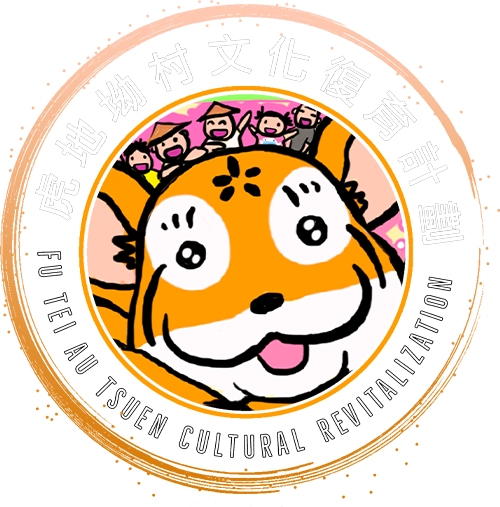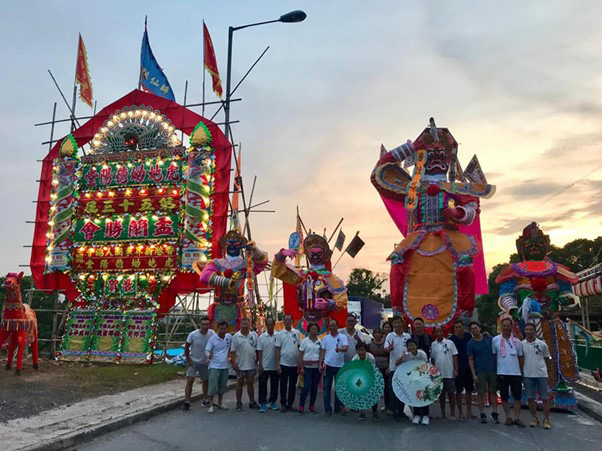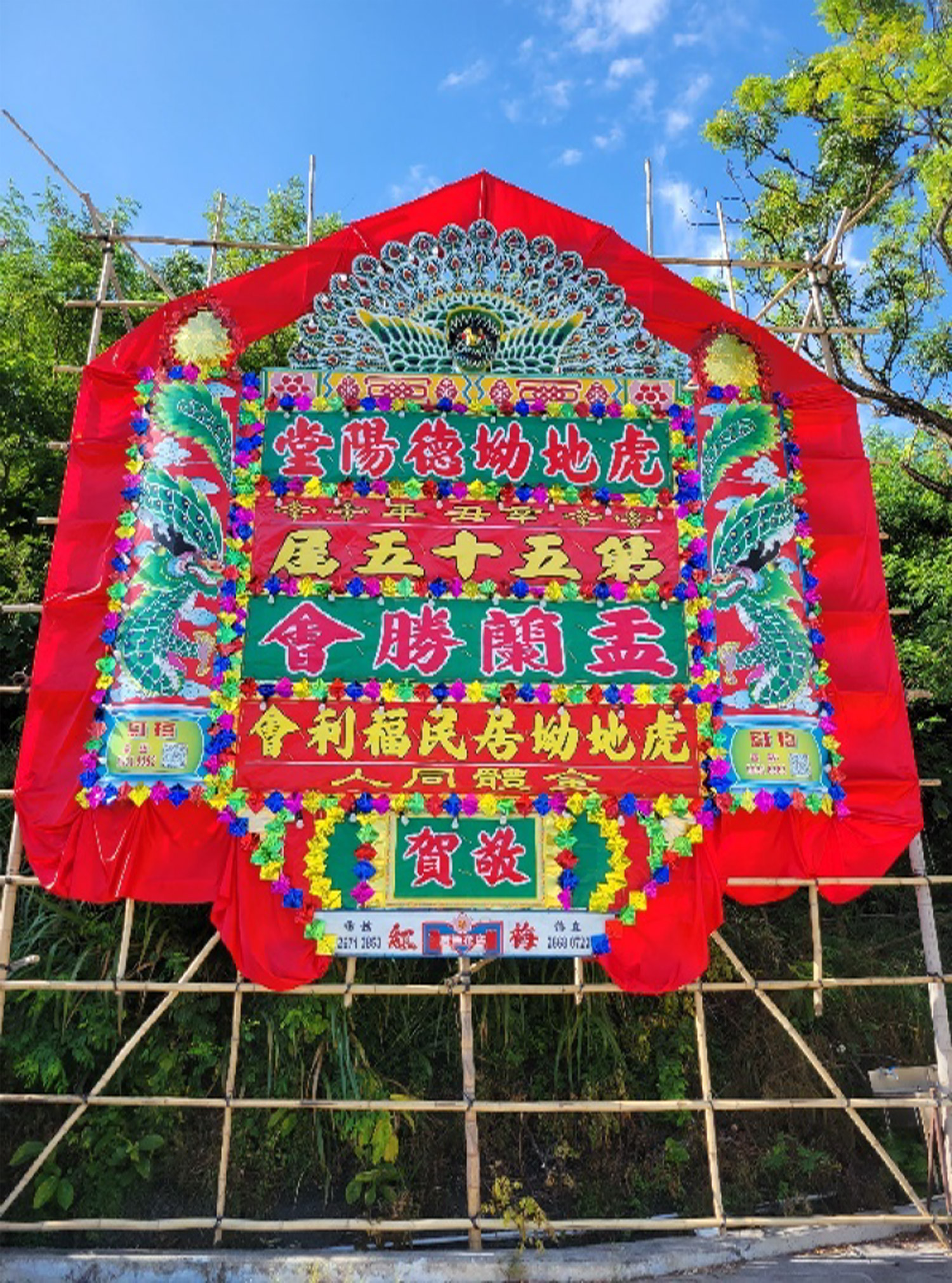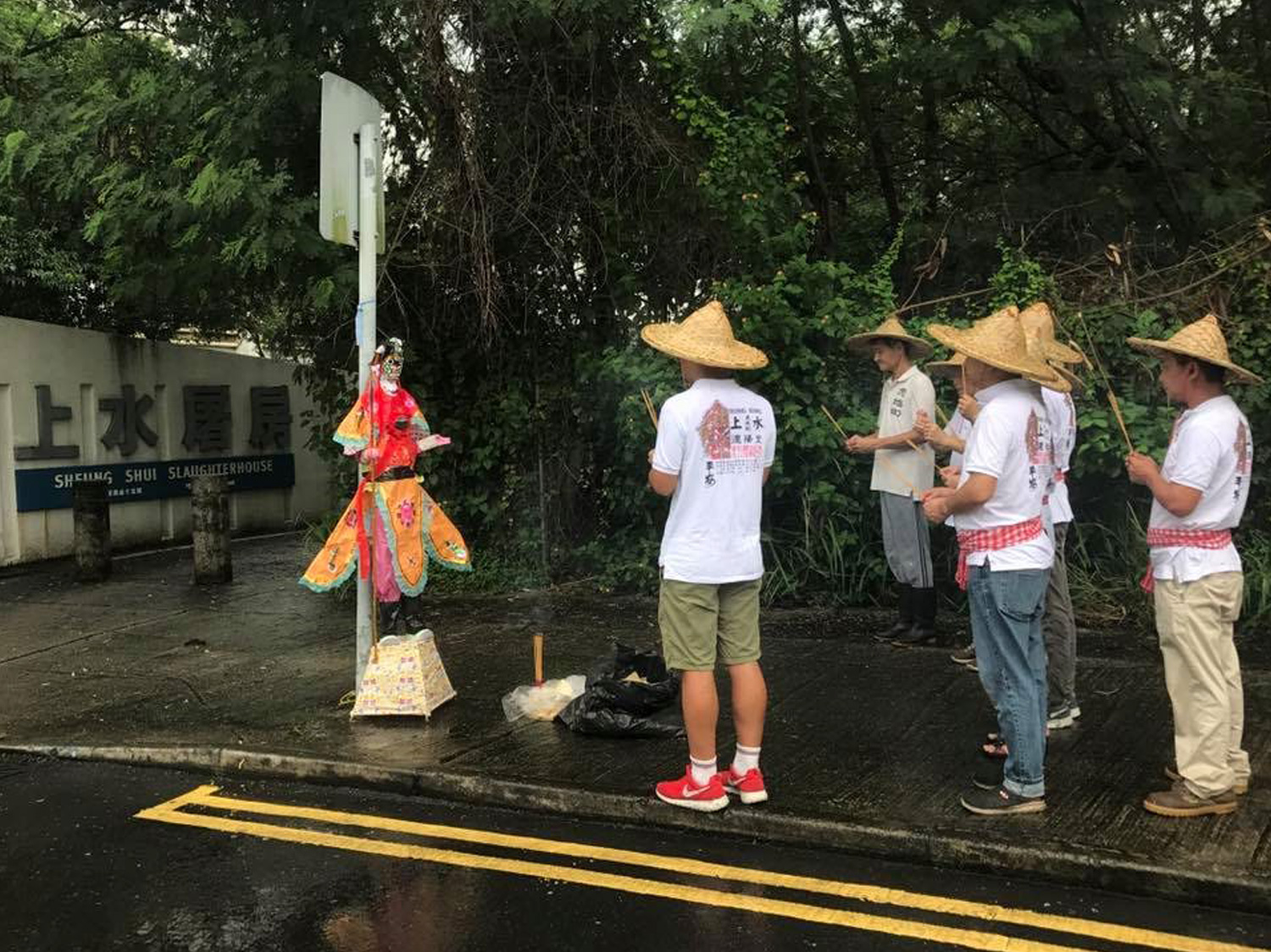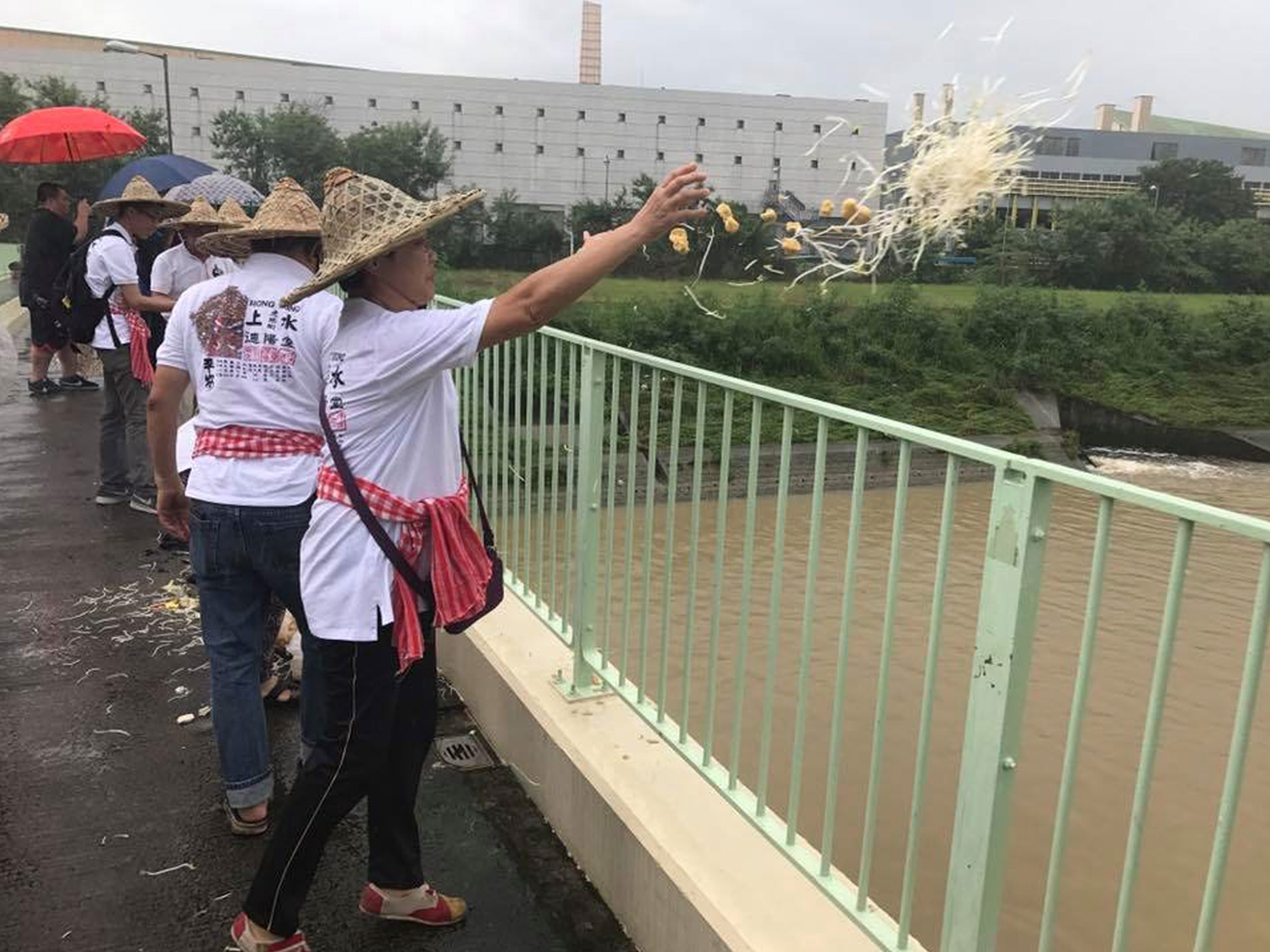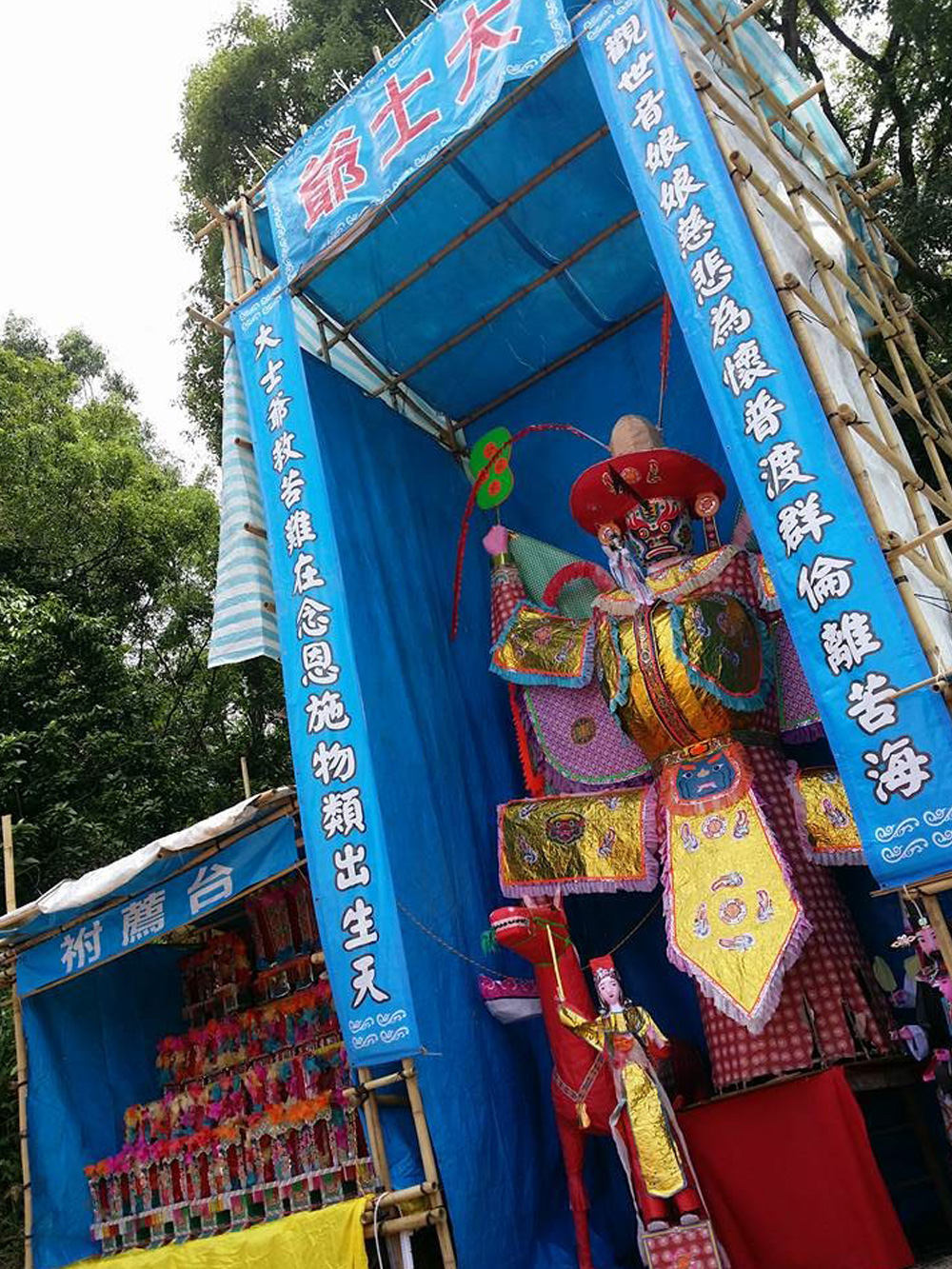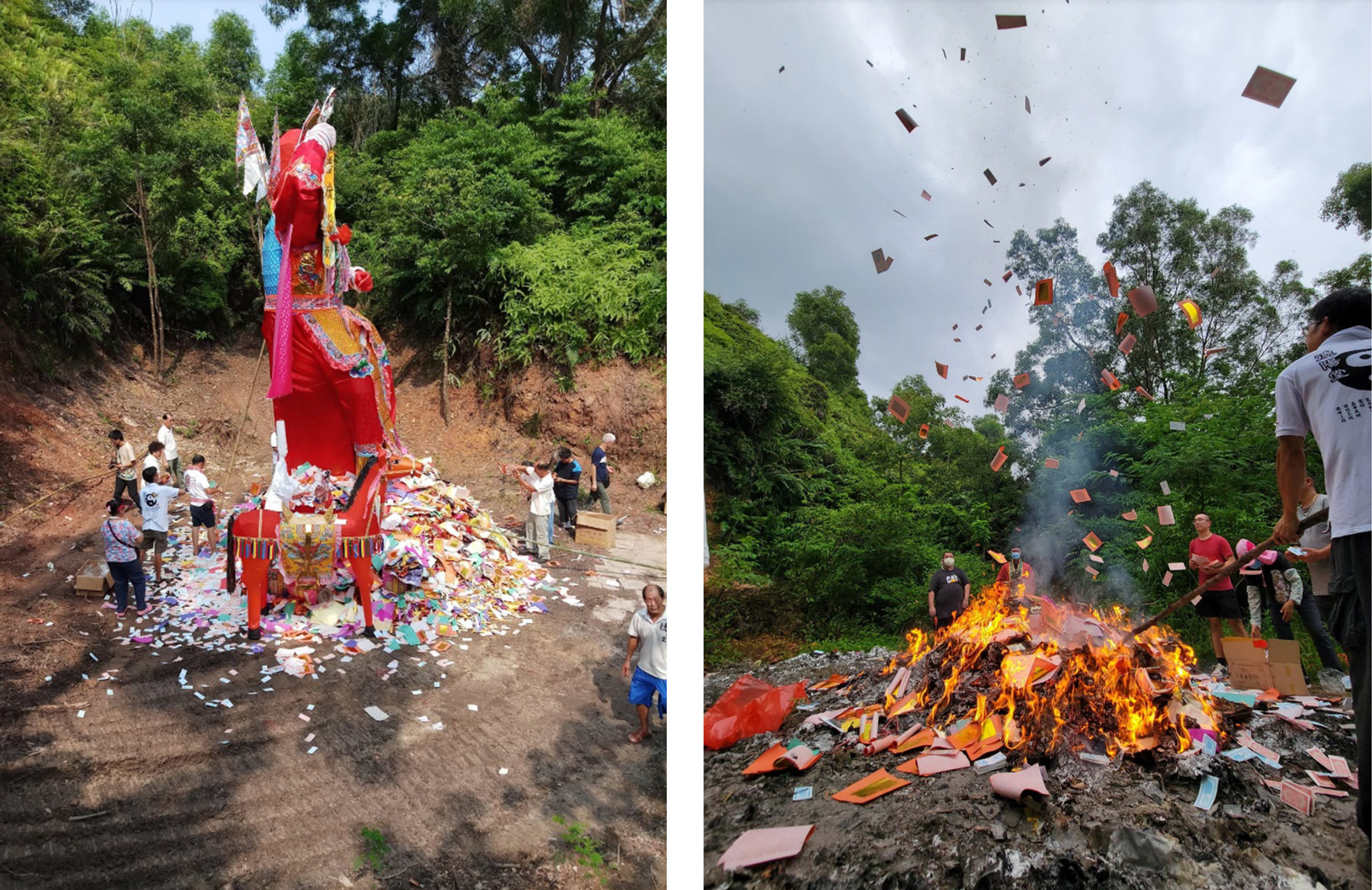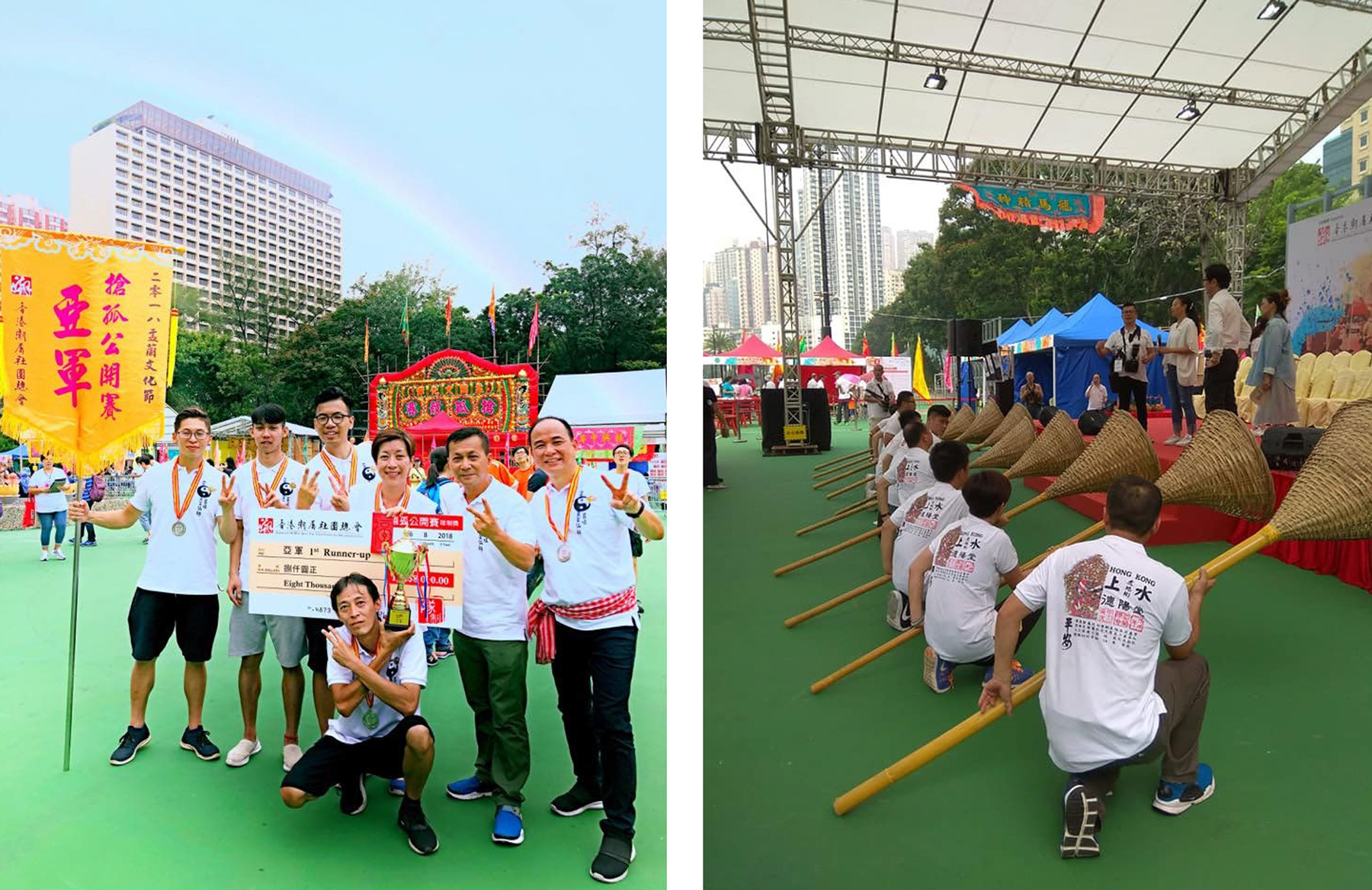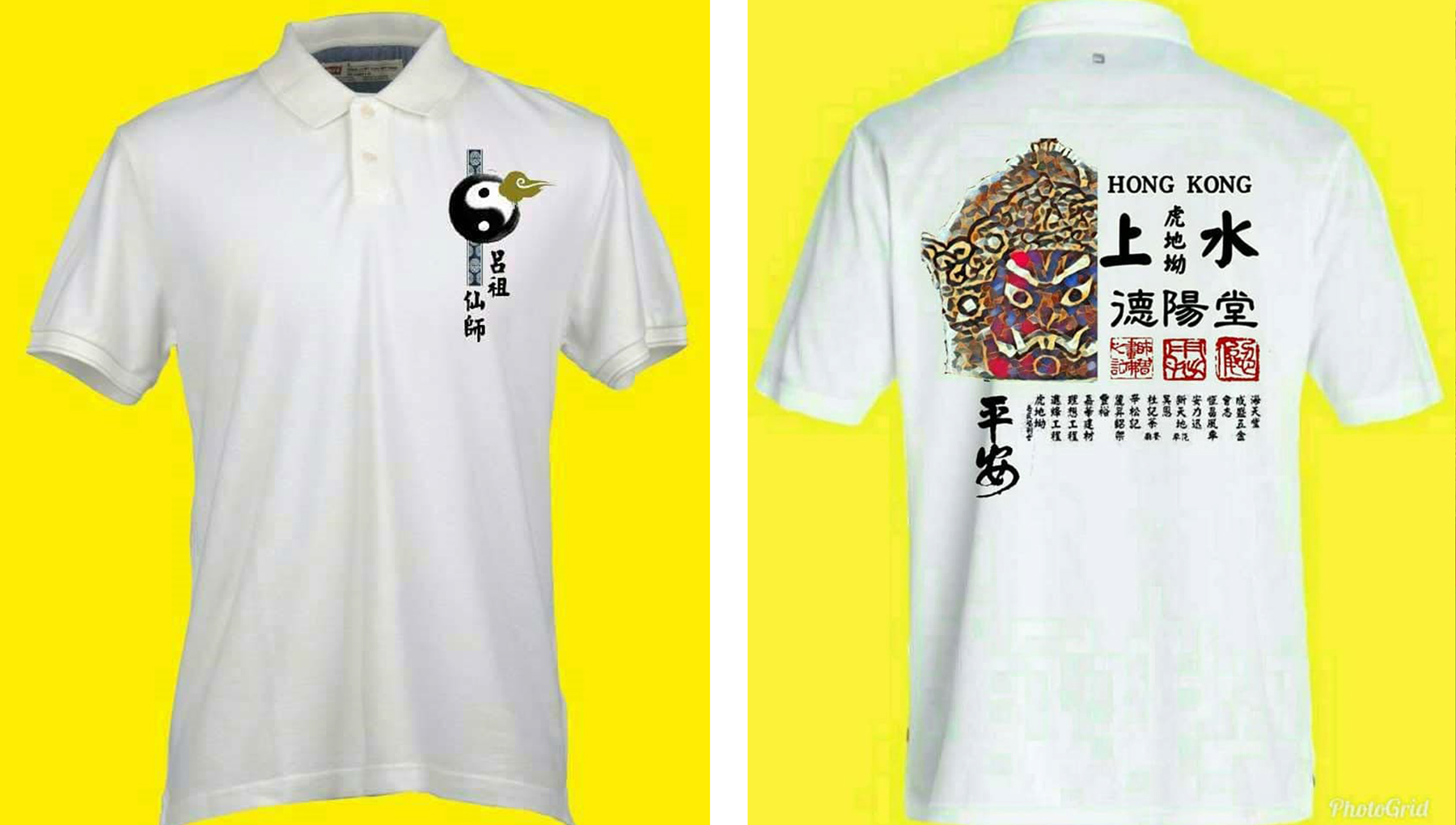The 1st Fu Tei Au Hungry Ghost Festival (aka Yulan Festival) was held in year 1967, an idea stemmed from a casual conversation between several villagers who expressed their desire to honour the “fellow brothers” (a term that refers to townsmen who were deceased away from home, or simply people who passed away) who lost their lives by crossing the border during one of Hong Kong’s greatest refugee crises during 1950s to 1960s, and hopefully to bring peace and prosperity by appeasing lost souls from the netherworld. 11 villagers who immigrated from different districts in Chiu Chow (such as Chaoyang and Huilai), agreed to the suggestion and each chipped in $200 for the commencement of the first Yulan. While most founding members have departed, 3 of them are still with us and have been participated in Yulan as esteemed guests - they are Mr. Lam Lik, Mr. Cheng Hon Chun, and Mr. Chan Chiu Lam, father of Fu Tei Au Yulan Association’s current chairman Mr. Chan Yiu On.
Similar to most Yulan organizations out there, Fu Tei Au Hungry Ghost Festival is accustomed to setting up sheds and altars to house and worship various entities. For instance, “Heaven and Earth parents” represents the creators and guardians of all things, “GuanYin”, “Southern and Northern Stars”, “Earth God”, other folk gods and wandering spirits. Lui Cho was specifically invited as the village’s local deity during the first Fu Tei Au Hungry Ghost Festival, which led to the derivation of the Lui Cho Temple (Deyang Hall) - the designated place for holding the Hungry Ghost Festival, congregating the gregarious communities to partake in various activities for years. An unanimous decision on setting the annual event date was also made the same year by way of divination blocks - July 17 and 18 of the Chinese lunar calendar were deemed approved by Lui Cho after a series of blocks casting ritual. Nowadays, Fu Tei Au Yulan Festival has been extended from two to three days, and are usually held on weekends during the seventh lunar month (aka Ghost Month) so that more people may join this big day.
Traditional Hungry Ghost Festival encompasses a combination of rites in order to sooth and entertain unworldly spirits, such as chanting scriptures, burning incense and paper effigies, and performing Chinese opera, just to name a few. To save resources and money, villagers used to put up bamboo stages and prepare vegetarian dishes all by themselves. Families would gather around to fold joss paper into gold ingots as offerings to ancestors. As the memberships and capital of Fu Tei Au Yulan Association grew in size, villagers started to hire companies to set up temporary sheds for the festival instead. The festival often culminate when villagers participate in a sizable and joyful feast on the last night of the 3-day worship marathon in celebration for its completion. Friends and families alike are invited to attend this hearty dinner where auction of auspicious items are held, at which funds for operating the next Yulan are raised. According to the resident welfare association, the largest banquet they have had thus far had over 70 tables that catered hundreds of attendees.
A quick look back at the last two decades reveals some drastic changes of the Hungry Ghost Festival at Fu Tei Au. Since year 2000, Taoist priest Mr. Kong has assumed the position of the temple keeper of Lui Cho Temple, and has officiated at various ceremonial events in related to the temple, including Yulan. Following the commissioning of the Sheung Shui Slaughterhouse, a procession to the Ng Tung River and the slaughterhouse was added to the festival’s program, which aims to perform on-site deliverance services to animal and human spirits who lost their lives here. In 2017, in search of ways to replace traditional burning of joss paper in reducing CO2 emission while still exhibit filial piety, villagers experimented to use a foaming machine to create heart-shaped bubble clouds by mixing helium with foaming liquid. These ‘clouds’ would then take flight and stay afloat in the sky, an alternative method for people to show respect to their ancestors. Aside from internal changes, Fu Tei Au Yulan Association has also reached out for more connections to the wider Yulan communities in Hong Kong. Fu Tei Au Yulan Association was admitted into the Federation of Hong Kong Chiu Chow Community Organizations (FHKCCC) in 2016, and proudly received a recognition certificate of Chiu Chow Yulan being the Third National List of Intangible Cultural Heritage of China. Fu Tei Au has also partaken in the annual Yu Lan Cultural Festival and won 2nd runner up in the Ghost Grappling competition in 2017 and 2018 respectively, as well as the 2016’s and 2018’s championship in a game where families competed to stack the highest piles of tributes on a shrine tray.
If one were to pick the most special element of the Yulan held in Fu Tei Au, it has to be its prototypical presentation of the King of Ghosts. It is believed that he holds the power to maintain discipline of the spirits who roam the living realm freely during the Ghost Month. To honour the demographic diversity of the residents at Fu Tei Au, villagers have agreed to take turns in altering the type of representation the Ghost King’s effigy takes every year. In 2019, Fu Tei Au villagers pioneered to build and display four different types of the Ghost King effigies all in one place, an unorthodox practice in the Yulan Festival history. Each effigy’s face colour varied and embodied unique origin customs – red for Hakka, blue for Chiuchow, white for Dongguan, and green for Fujian. Strings of Japanese-styled oil-paper umbrellas and lanterns were incorporated into the festival the same year. By adopting innovative elements to traditional Yulan, villagers aspire to preserve and pass on this invaluable culture.




